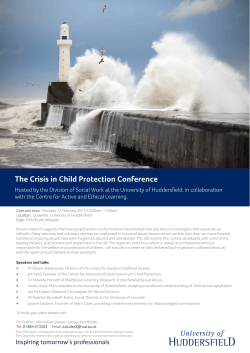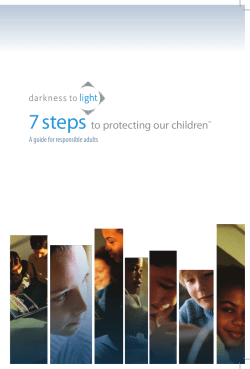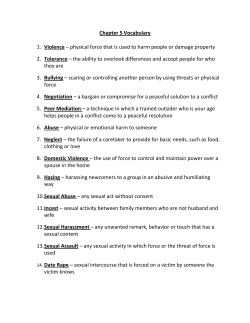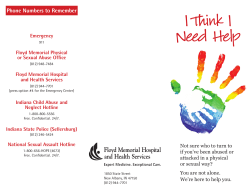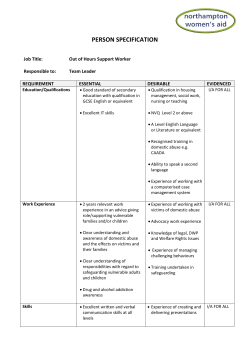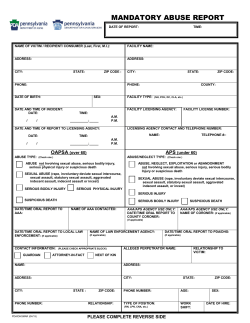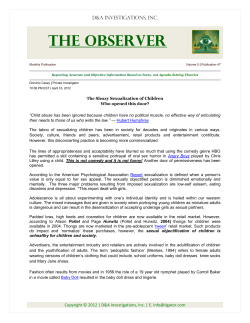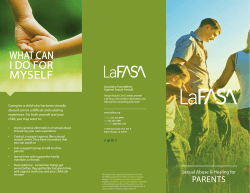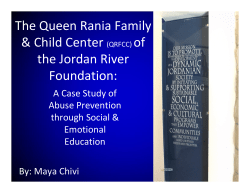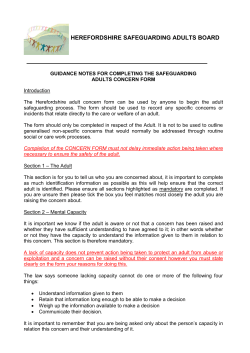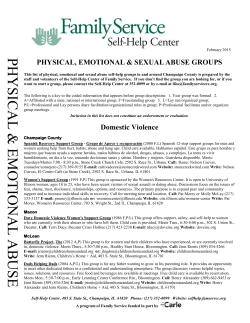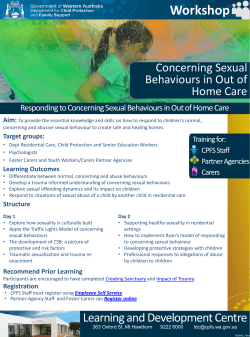
Creating a Holistic Approach to Child Sexual Abuse Prevention
Creating a Holistic Approach to Child Sexual Abuse Prevention Connecting Disparate Approaches using the ‘Twelve Points of focus for Preventive Action’ Matrix ACCAN 2015 Melanie Calvesbert 1.4.2015 Prevention, some models and ideas which inform my thinking • • • • • • • Public Health approach Community Development Primary, secondary and tertiary prevention Socio Ecological Model Community Readiness Model Social marketing Crime prevention models and strategies Principles of Stop it Now! UK and Ireland • • • • • Child sexual abuse is preventable not inevitable To stop child sexual abuse we need to start talking about how we can prevent it Child sexual abuse requires a multi agency, comprehensive approach – we cannot simply ‘arrest’ our way out of it Adults need to take responsibility for preventing child sexual abuse Adults who are worried about their own thoughts and behaviour should come forward for help Stop it Now! UK and Ireland, Helpline and campaign report 2002 – 2012 www.stopitnow.org www.stopitnow.org.uk www.parentsprotect.co.uk Misconceptions re child sexual abuse • • • • • A child will immediately report the abuse to a trusted person. If a child retracts an allegation this means they were untruthful in the first place. A continued close relationship between the child and the perpetrator means there was no abuse. Children are more likely than adults to lie deliberately and may have ulterior motives. If a child is sexually abused they will always struggle and try to escape. Dr Suzanne Blackwell (2007) 4 Misconceptions re child sexual abuse cont… • • • • • • • • who does the abuse who it happens to the effects of sexual abuse why children don’t tell? under / over react need 100% proof before raising a concern that adults who sexually abuse children can not change and would not seek help even if it was available that we as adults can pick a person who is dangerous to children because they are ‘beasts’ or ‘monsters’ Sharing the responsibility for the solution Twelve Points of Focus for Preventive Action Primary Prevention Secondary Prevention Tertiary Prevention (Potential) Offenders (Potential) Victims Situations Communities Note. From Preventing Child Sexual Abuse: Evidence, Policy and Practice, p. 199, by S. Smallbone et al., 2008, Devon, UK: Willan Publishing Where to now? • • • • National Strategic Plan Helpline Local collaborations: baseline studies, workshops, champions, resources, evaluation Children and children Educate public re sexual offending. Get mythology sorted out, need to empower not disable, be strategic, get the idea across that prevention is something that everyone can do, not only Stat and NGO or police. Martin Henry National Manager Stop it Now! Scotland Melanie Calvesbert melanie@wellingtonhelp.org.nz
© Copyright 2025
